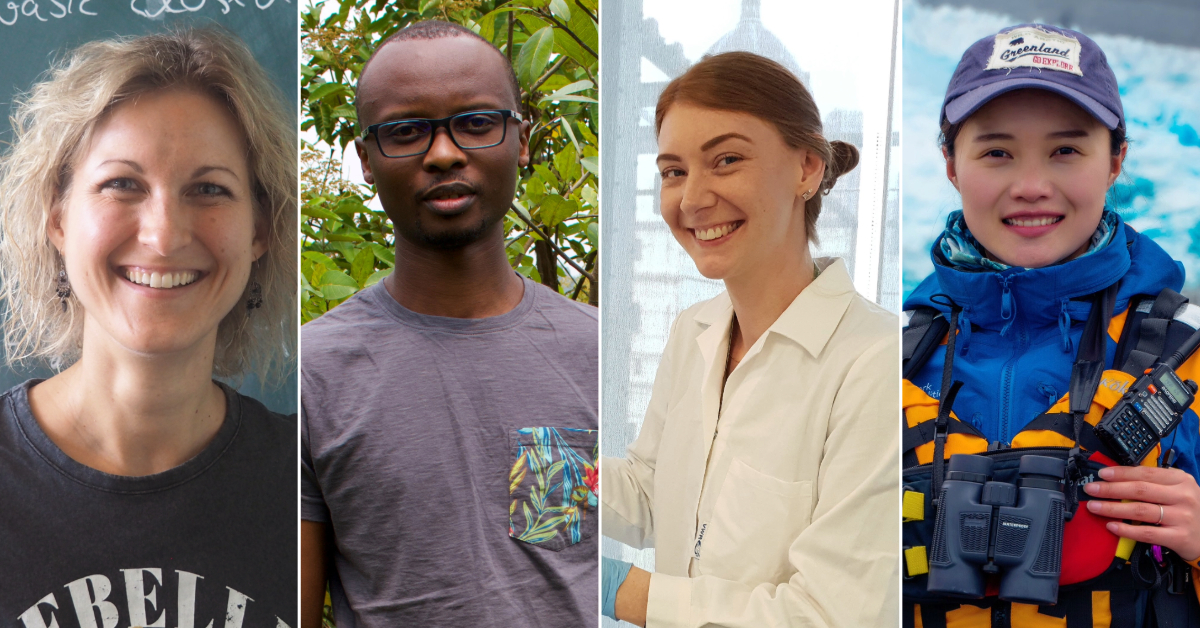
The Australian Academy of Science has announced that four early career researchers have received the 2024 J G Russell Award.
The J G Russell Award provides financial assistance to talented younger researchers in the basic sciences, in recognition of the community's regard for them.
This award is supported by the generosity of the late Miss J Russell and provides top-up grants to projects funded through the Australian Research Council's Discovery Early Career Research Award (DECRA).
Dr Mareike Dressler, University of New South Wales
Mathematician Dr Mareike Dressler is using mathematical methods to make optimal decisions for real-world problems. Optimisation is a type of mathematical problem for making the best possible (optimal) decision from a set of numerous feasible choices.
Dr Dressler said many real-world problems can be cast as polynomial optimisation problems. But the mathematical methods and algorithms currently used for solving polynomial problems of a large size are not sufficiently developed, limiting their application.
"By using an innovative combination of a novel theory of algebraic geometry and convex optimisation, my project aims to generate new knowledge and develop efficient methods to solve large-scale polynomial optimisation."
She will use the award funding to travel to Germany and France, visiting mathematical institutions to expand her knowledge, build networks and bring large-scale optimisation technologies back to Australia.
Dr Mirindi Eric Dusenge, Australian National University
Dr Mirindi Eric Dusenge's research aims to enhance our understanding of how climate change impacts key plant carbon metabolic processes, including leaf respiration and photosynthesis, on a global scale.
Dr Dusenge said we don't yet fully understand how future climate conditions will impact photosynthesis and plant respiration and plans to develop a framework to improve climate models.
"Studying leaf respiration in Australian forest trees will enable more accurate modelling of the global carbon cycle exchange, guide financial carbon markets, and improve food security."
This funding will support Dr Dusenge's field research at the Hawkesbury Institute for the Environment and contribute to hiring equipment that is essential to his research.
Dr Emily Roycroft, Australian National University
Evolutionary biologist Dr Emily Roycroft will use the funding from this award to travel to work with colleagues in Germany. She will be trained by experts in the application of a newly developed genomic sequencing method that provides an efficient and cost-effective way of generating higher resolution genomic data compared to current approaches.
Dr Roycroft will bring this knowledge back to Australia, to implement into her research on the evolution of Australian biodiversity, and to inform ongoing conservation management of threatened and declining species.
Dr Roycroft said this award would allow her to tackle long-standing questions about the evolutionary biology and molecular evolution and genetic health of Australian mammals.
"The new approaches I will apply as part of this project will accelerate my research, and place Australia on the cutting edge of advances in global research on conservation and evolutionary genomics."
Dr Chen Zhao, University of Tasmania
Dr Chen Zhao's research is dedicated to unravelling the intricate puzzle of how Antarctica's ice sheets contribute to rising sea levels.
The J G Russell Award will contribute to Dr Zhao's travel to the COP29 conference, where she will organise a side event to showcase the Australian research on Antarctic ice sheets and sea level rise projections through talks and panel discussions. She will also visit Dartmouth Engineering in the US to present her project to international collaborators.
"This opportunity allows me to share critical knowledge and findings with a diverse global audience, advocate for policies that preserve ice sheets, combat climate change and influence climate policies both nationally and internationally," Dr Zhao said.
The Academy's awards program
The Academy provides many awards and opportunities that support researchers at all stages of their career. Applications for funding opportunities for 2025 are still open, with a closing date of 1 June 2024.






